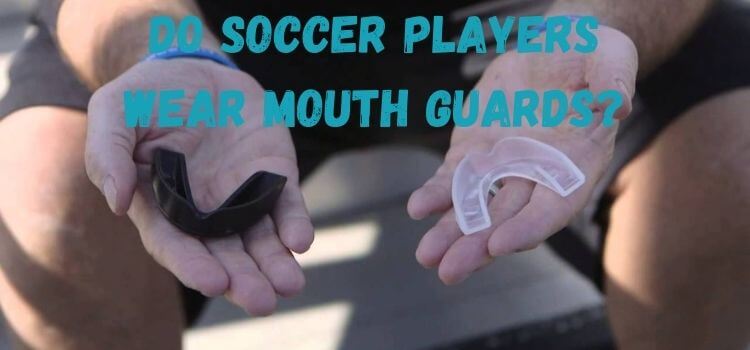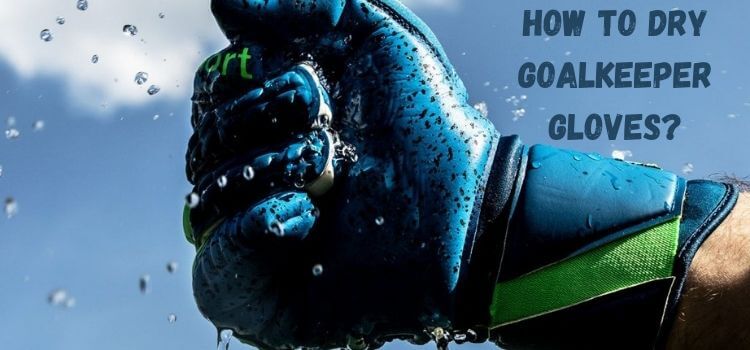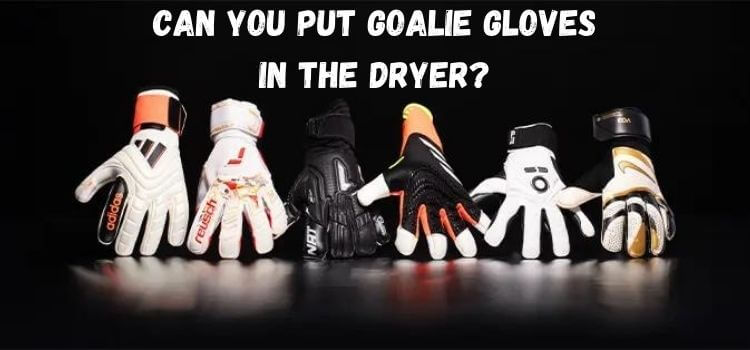As an Amazon Associate, I earn from qualifying purchases
Mouth guards are a standard piece of equipment in many contact sports, designed to protect athletes from dental injuries and concussions. While they are often associated with sports like football, hockey, and boxing, their relevance in soccer is increasingly being recognized. So, do soccer players wear mouth guards? Let’s delve into the reasons why they should, the types available, and their benefits, challenges, and trends in usage among soccer players.

History of Mouth Guards in Sports
Mouthguards have a storied history in sports. They first emerged in the early 20th century for use in boxing to prevent lip lacerations and dental injuries.
Over the decades, their design has evolved, incorporating better materials and technology to enhance comfort and protection. Today, they are a staple in many high-contact sports.
Why Mouth Guards Are Important in Soccer that Players Wear
Mouth guards are essential for shielding athletes’ mouths from dental trauma, such as broken teeth, and more severe wounds, like fractured jaws.
Additionally, they help reduce the risk of concussions by absorbing and dispersing the impact forces that can jolt the brain during collisions.
Surprisingly, some studies suggest that wearing a mouth guard enhances athletic performance by improving breathing efficiency and focus.
Types of Mouth Guards That Soccer Players Wear
Mouthguards come in three main varieties, each with differing degrees of comfort and protection:
- Stock Mouth Guards: Pre-formed and ready to wear, but often ill-fitting and uncomfortable.
- Boil and Bite Mouth Guards: Made from a thermoplastic material that softens when boiled, allowing the user to shape it to their mouth.
- Custom-Fitted Mouth Guards: These are professionally made by a dentist from a mold of the athlete’s teeth, providing the best fit and protection.
Usage in Soccer
Soccer, known globally as football, is not traditionally seen as a high-contact sport like rugby or American football. However, it has its share of physical confrontations, accidental collisions, and falls, leading to dental and facial injuries.
Despite this, mouthguard usage among soccer players is less prevalent.
Benefits of Mouth Guards that Wear Soccer Players
Injury Prevention
Mouthguards dramatically lower the chance of concussions and dental damage. This is especially important in soccer, where unexpected impacts can occur from elbows, balls, and even head clashes.
Comfort and Performance
Modern mouthguards are designed to be comfortable, allowing players to breathe and communicate effectively. Some athletes report feeling more confident and focused when they know they are better protected.
Psychological Benefits
Mouthguards can give players a psychological advantage by lowering their fear of getting hurt, enabling them to participate more thoroughly in the game.
Challenges and Misconceptions
Perceived Discomfort
Some players avoid mouthguards due to concerns about comfort and breathing. However, advancements in design have addressed many of these issues.
Lack of Enforcement
Unlike other sports, where mouthguards are mandatory, soccer only sometimes enforces their use, leading to lower adoption rates.
Myths about Mouth Guards
There are misconceptions that mouthguards are only necessary for sports with direct head impacts. Education is critical to dispelling these myths.
Professional Soccer Players and Mouth Guards
While mouthguard use is not widespread among professional soccer players, a growing number are adopting it, influenced by awareness of the benefits and high-profile endorsements from athletes who advocate for their use.
Youth Soccer and Mouth Guards
The importance of mouthguards for young athletes cannot be overstated. Schools and youth soccer leagues are encouraging their use more and more as they realize that early habit formation can result in lifelong safety practices.
Mouth Guard Regulations in Soccer
Compared to sports like rugby or American football, where mouthguards are mandatory, soccer has more relaxed regulations. However, some leagues and tournaments are beginning to recommend or require them, especially for youth players.
Custom vs. Over-the-Counter Mouth Guards
Choosing between custom and over-the-counter mouthguards depends on factors like comfort, fit, and budget. Custom-fitted mouthguards offer superior protection and comfort but are more expensive.
Boil and bite options provide a middle ground, balancing cost with a better fit than stock versions.
How to Choose the Right Mouth Guard
When selecting a mouthguard, consider the following factors:
- Fit: It should fit snugly without restricting breathing or speaking.
- Comfort: A comfortable mouth guard is more likely to be worn consistently.
- Protection Level: Ensure it offers adequate protection for the intensity of play.
- Durability: Seek for materials that are resilient to frequent washings and use.
Caring for Your Mouth Guard
Proper maintenance of a mouthguard is essential for hygiene and longevity. Check for wear and tear, store it in a vented case, and clean it frequently with mild soap and water. Replace it as needed, typically every season or if it shows signs of damage.
Future of Mouth Guards in Soccer that Players Wear
With advancements in materials and technology, the future of mouthguards in soccer looks promising. Innovations such as intelligent mouthguards, which can monitor impacts and provide data to coaches and medical staff, are on the horizon.
Additionally, increasing awareness and changes in regulations could lead to higher adoption rates.
Conclusion
Soccer players should consider using mouthguards as necessary protective gear. They offer significant benefits in terms of injury prevention, performance, and peace of mind. As awareness grows and technology advances, the adoption of mouthguards in soccer is likely to increase, making the sport safer for everyone involved.
FAQs of Mouth Guards in Soccer that Players Wear
While not as common as in other sports, more soccer players are beginning to wear mouth guards due to the benefits of protection and performance enhancement.
Mouthguards are not universally mandatory in soccer, but some leagues and tournaments are starting to recommend or require them, especially for youth players.
Mouth guards help prevent concussions by absorbing and dispersing the impact forces that can cause the brain to jolt within the skull.
Custom-fitted mouthguards are generally considered the best for soccer players due to their superior fit and protection. However, boil and bite mouthguards are a good alternative for those looking for a balance between cost and effectiveness.
Generally speaking, soccer players should change their mouth guards every season or sooner if they exhibit wear or damage.
Read Our More Articles
- How Are Shin Guards Worn? A Comprehensive Overview
- How to Keep Shin Guards in Place: A Comprehensive Guide
- Do Soccer Players Wear Jockstraps? An Expert’s Guide
- Do Professional Soccer Players Wear Cups? An In-Depth Look
- Do Soccer Goalies Wear Knee Pads? An In-Depth Look
As an Amazon Associate, I earn from qualifying purchases


